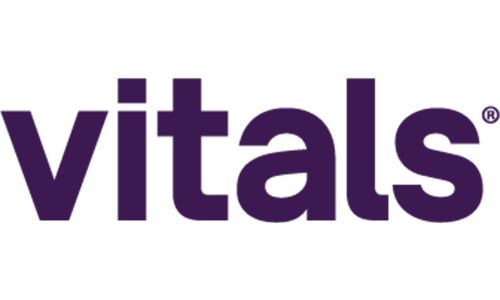Social Media for Physician Practices
As the world becomes increasingly interconnected and reliant on digital communications, social media has become an essential tool for physician practices to connect with patients and expand their reach. With over two billion monthly active users worldwide, social media platforms offer unprecedented opportunities for medical professionals to inform, educate and engage with their target audiences. In this blog, we will explore the benefits of social media for physician practices, discuss best practices for creating and managing online content, and examine strategies for using social media to build a strong online presence that drives patient engagement and retention. Whether you are a small independent practice or a large healthcare system, this guide will provide you with practical tips and advice to help you leverage social media to achieve your business goals.
1. Healthcare industry giants are active on Facebook and Twitter.
It's no secret that healthcare industry giants are active on social media platforms like Facebook and Twitter. In fact, nearly 90% of all adults in the USA search for health information on these platforms. Through their social media presence, medical organizations and practitioners can reach potential patients, share information, and engage with healthcare issues. Video content has become a highly effective and engaging way to connect with patients. It's important to maintain a professional yet personable presence on social media to build strong relationships with patients. Healthcare employers must also be aware of the unique risks related to HIPAA privacy rules when using social media. Defining your target audience is crucial for social media success as it can be used to attract new patients, but it's not a direct cause-effect relationship. Popular platforms like Facebook and Instagram continue to be go-to choices for healthcare professionals to market their practice and connect with patients.
2. Video content is highly effective for engaging with patients.
In today's digital age, video content has become one of the most effective ways to communicate and engage with patients. Physicians and medical staff are leveraging the power of video marketing to promote healthcare education, share accurate health messaging, and attract new patients. Videos on social media and practice websites create a sense of familiarity and trust, helping patients connect with their healthcare providers on a more personal level. It's important to note that video content is not just limited to patient education. Physicians also benefit from video-based learning, making it a preferred media for physician education. By incorporating video into their social media strategy, physician practices can boost engagement rates and enhance their brand image, leading to an increase in patient loyalty and a stronger overall online presence.
3. It's important to maintain a professional yet personable presence on social media.
Maintaining a professional yet personable presence on social media is crucial for healthcare professionals. While social media provides an opportunity to connect with patients and establish a rapport, it's important to remember that this is a professional setting. Healthcare employers also face unique risks related to HIPAA privacy rules, so it's crucial to ensure that all content is appropriate and does not violate any regulations. Defining and targeting the ideal patient and audience is also vital for success on social media. By combining professionalism and approachability, practitioners can use social media to market their practice and attract new patients. Popular platforms like Facebook and Instagram offer ample opportunities to connect with patients and share important information about health and wellness. Ultimately, a professional yet personable presence can help healthcare professionals build strong relationships with patients and promote trust in their expertise.
4. Social media is all about building relationships with patients.
The success of social media for physician practices largely depends on their ability to build relationships with patients. Through social media, doctors have the opportunity to engage with their patients in a way that was not possible before. By sharing information that addresses commonly asked questions and concerns, practices can build a level of trust and rapport with their followers that leads to more shares and likes. Additionally, social media allows patients to feel more connected to their healthcare providers, which can lead to increased patient satisfaction and loyalty. In order to successfully build relationships with patients on social media, it's important for healthcare professionals to maintain a professional yet personable presence and to define their target audience. By doing so, they can create content that resonates with their patients and fosters deeper connections.
5. Physician practices can use social media to share information and engage with healthcare issues.
Social media offers valuable tools for healthcare professionals to engage with healthcare issues and share critical information. With Facebook, Instagram, and other platforms, healthcare professionals can connect with patients and the general public, promoting awareness and sharing accurate health messaging. They can also discuss healthcare guidelines, policies, and practices that help patients understand their conditions better. Social media can be an instrumental way for physician practices to share information, engage indirectly with patients, and promote awareness of healthcare issues. Social media can close gaps in communication between healthcare professionals, allowing them to communicate from anywhere in the world. However, healthcare employers must be aware of HIPAA privacy rules while using social media.
6. Healthcare employers face unique risks related to HIPAA privacy rules.
Healthcare employers need to be aware of the unique risks associated with HIPAA privacy rules when using social media for their practices. Protecting patient confidentiality is of utmost importance and any violation can result in hefty fines and legal action. Therefore, it's crucial for healthcare professionals and their employers to understand the HIPAA rules related to social media use, including patient consent and privacy policies. Employers can develop specific guidelines to ensure compliance with HIPAA rules and train their staff on the proper use of social media for healthcare purposes. By following these guidelines, healthcare employers can effectively use social media to reach patients while maintaining patient privacy and avoiding any potential legal consequences.
7. Defining your ideal target audience is crucial for social media success.
Defining your ideal patient and target audience is crucial for social media success in physician practices. As we have discussed in previous sections, social media can be an effective marketing tool for healthcare providers. However, to make the most of it, you need to know exactly who you want to attract with your messages. Creating a detailed buyer persona will help you tailor your social media content to their specific needs and preferences, and increase the likelihood of engagement and conversions. Factors like demographics, interests, and health conditions will influence the type of content and platforms you use. Remember to keep your messages professional but relatable, and always prioritize accuracy and privacy, particularly around HIPAA rules. By understanding your ideal patient and target audience, you can build more meaningful relationships with them, and ultimately, grow your practice.
8. Social media can be used to attract new patients, but it's not a direct cause-effect relationship.
While social media can certainly be used to attract new patients to a physician's practice, it is important to recognize that this is not a direct, cause-and-effect relationship. Building a strong social media presence takes time and effort, and simply creating a page or account will not automatically lead to an influx of new patients. That being said, social media can be a valuable tool for connecting with both current and potential patients, sharing information and resources, and establishing a strong online presence. By defining the ideal patient and target audience, maintaining a professional yet personable presence, and regularly posting engaging and informative content, medical practitioners can use social media to market their practice and reach more patients. Facebook and Instagram are among the most popular social media platforms for healthcare professionals, but ultimately, the choice of platform depends on the specific needs and preferences of each practice.
9. Medical practitioners can use social media to market their practice and reach more patients.
In today's digital age, social media has become a powerful tool for medical practitioners to market their practice and reach out to potential patients. By establishing a strong online presence and effectively utilizing social media platforms such as Facebook and Instagram, healthcare professionals can connect with a wider audience and showcase their services. With careful attention to HIPAA privacy rules and guidelines offered by professional organizations, medical practitioners can leverage the power of social media to expand their reach and grow their practice.
10. Facebook and Instagram are popular social media platforms for healthcare professionals.
Facebook and Instagram are two popular social media platforms widely used by healthcare professionals to engage with patients and share information. With over 2.7 billion active users, Facebook is an excellent platform to build online relationships with patients and share informative posts, images, and videos about healthcare issues. Instagram, on the other hand, is an ideal platform to showcase medical procedures, results, and the practice. A professional yet personable social media presence on these platforms can significantly benefit medical practitioners and their practice. Social media can also be leveraged to attract new patients, although it's vital to define the ideal patient and target audience while keeping HIPAA privacy rules in mind.
Conclusion
Social media can be a valuable tool for medical practices to engage with their patients and reach a larger audience. However, it's important for healthcare professionals to approach social media with caution, as patient privacy should always be a top priority. By maintaining a professional, yet personable presence on social media and building relationships with patients, physicians can promote their services and share information about healthcare issues. Through video content and active participation on platforms like Facebook, Twitter, and Instagram, medical practitioners can attract new patients and enhance their practice. To ensure success, it's crucial for healthcare practices to establish written social media policies and define their target audiences. Overall, social media can be a powerful tool for physician practices when used correctly and responsibly.
Clinician Box is an all-in-one healthcare marketing. Our top-notch services include HIPAA Reputation and Social Media Management. Book your free strategic meeting with us today to learn more!















